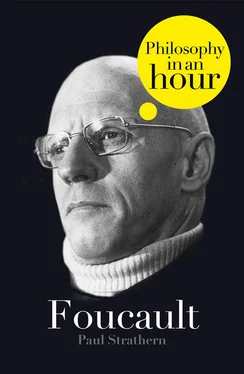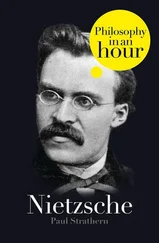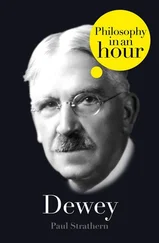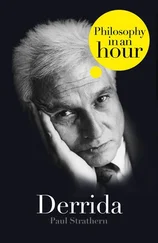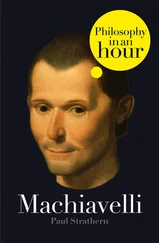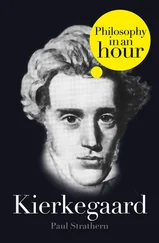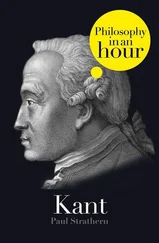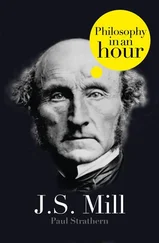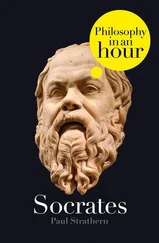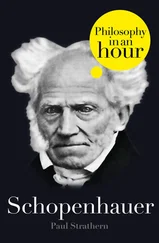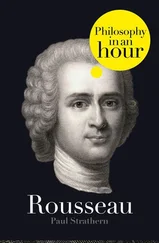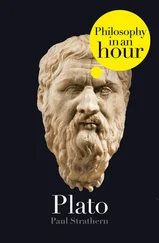Foucault
PHILOSOPHY IN AN HOUR
Paul Strathern

Cover
Title Page Foucault PHILOSOPHY IN AN HOUR Paul Strathern
Introduction
Foucault’s Life and Works
Further Information Конец ознакомительного фрагмента. Текст предоставлен ООО «ЛитРес». Прочитайте эту книгу целиком, купив полную легальную версию на ЛитРес. Безопасно оплатить книгу можно банковской картой Visa, MasterCard, Maestro, со счета мобильного телефона, с платежного терминала, в салоне МТС или Связной, через PayPal, WebMoney, Яндекс.Деньги, QIWI Кошелек, бонусными картами или другим удобным Вам способом.
By and About Foucault: Some Quotes, Criticisms, and Ideas
Chronology of Significant Philosophical Dates
Chronology of Foucault’s Life
Recommended Reading
About the Author
Copyright
About the Publisher
Introduction Contents Cover Title Page Foucault PHILOSOPHY IN AN HOUR Paul Strathern Introduction Foucault’s Life and Works Further Information Конец ознакомительного фрагмента. Текст предоставлен ООО «ЛитРес». Прочитайте эту книгу целиком, купив полную легальную версию на ЛитРес. Безопасно оплатить книгу можно банковской картой Visa, MasterCard, Maestro, со счета мобильного телефона, с платежного терминала, в салоне МТС или Связной, через PayPal, WebMoney, Яндекс.Деньги, QIWI Кошелек, бонусными картами или другим удобным Вам способом. By and About Foucault: Some Quotes, Criticisms, and Ideas Chronology of Significant Philosophical Dates Chronology of Foucault’s Life Recommended Reading About the Author Copyright About the Publisher
Foucault was not a philosopher in the classical tradition. Even so, at one stage in his life he was regarded in some quarters as the new Kant – an absurdly overblown estimation. But this was hardly Foucault’s fault (even if he did little to discourage such opinions). It was also hardly his fault that the very possibility of being a classical philosopher was completely beyond him. This is no mere intellectual judgment. The fact is, Wittgenstein had to all intents and purposes brought philosophy in the classical tradition to a close. Wittgenstein had insisted there was no longer any such thing as philosophy – just philosophising. Most major philosophical questions were the result of linguistic errors. Untangle the mistake, and the question simply disappeared. And any remaining questions were simply unanswerable (or, more correctly, unaskable).
But a variant of the classical philosophical tradition did persist in continental Europe, in the work of Heidegger. This claimed to operate beyond Wittgensteinian realms, beyond the reach of logic, analysing the very grounds of our thought and apprehension. Foucault was heavily influenced by this tradition. It led him to uncover how philosophy, and indeed all ‘knowledges’, arrive at their versions of the truth. He showed that such ‘truths’ depended largely upon the assumptions, or mind-set, of the age in which they were promulgated.
Foucault set about his task like a historian rather than a philosopher. Painstakingly he researched original documents from the period he was investigating. These revealed firsthand the society, knowledge, and power structure of the age in question. Foucault concluded that knowledge and power were so closely related that he collated them in his term ‘power/knowledge’. This was the central issue of his philosophy. But in reaching it, and investigating its implications, he covered a wide range of often sensational material. Madness, sexuality, discipline and punishment – the history of such topics was considered essential to his argument. Add to this the relation of these topics to his personal life, and you have the most sensational philosopher of modern times.
Yet how much of actual philosophical worth was contained within all this sensationalism? Nearly twenty years after his death, reactions to this question remain sharply divided. Philosophical oblivion is easily attained: the fact that Foucault is still being discussed at all is recognition of a sort. How much longer this state of affairs will continue is up to us to decide.
Foucault’s Life and Works Contents Cover Title Page Foucault PHILOSOPHY IN AN HOUR Paul Strathern Introduction Foucault’s Life and Works Further Information Конец ознакомительного фрагмента. Текст предоставлен ООО «ЛитРес». Прочитайте эту книгу целиком, купив полную легальную версию на ЛитРес. Безопасно оплатить книгу можно банковской картой Visa, MasterCard, Maestro, со счета мобильного телефона, с платежного терминала, в салоне МТС или Связной, через PayPal, WebMoney, Яндекс.Деньги, QIWI Кошелек, бонусными картами или другим удобным Вам способом. By and About Foucault: Some Quotes, Criticisms, and Ideas Chronology of Significant Philosophical Dates Chronology of Foucault’s Life Recommended Reading About the Author Copyright About the Publisher
Paul-Michel Foucault was born on October 15, 1926, at Poitiers, 250 miles south of Paris. His family were well-to-do bourgeois in a town that has remained a byword for French provincialism. His father was a surgeon, taught at the local medical school, and ran a prosperous practice. His mother was a strong-minded woman who managed her husband’s finances, helped administer his practice, and daringly drove an automobile.
Besides their town house in Poitiers, the family owned a small manor house in the country. During Paul-Michel’s childhood they also built a seaside villa on the Atlantic coast at La Baule. This was large enough for a family of five and servants. Here the family spent their summer holidays amidst the pine trees overlooking a long curve of sandy beach. Father was kindly but stern, mother was efficient but concerned. For Paul-Michel, life at home with his older sister and younger brother was the epitome of normality. Such was the standard background of so many intransigent French intellectuals who have revolted against all forms of authority and bourgeois behaviour. (Although he would strive to rebel against so much else, Foucault would not be able to avoid conforming to this Gallic stereotype, which had held sway from Voltaire to Sartre).
At school young Paul-Michel was weedy and shortsighted. As a result his schoolmates soon corrupted his name to Polchinelle (the French equivalent of the hunchbacked figure of fun we know as Punch). Freudians will be intrigued to know that he dreamed of becoming a goldfish. Such fishy ambitions were reflected in his academic performance. Although evidently bright, he never excelled. Even at his favourite subject, history, he only finished second.
World events impinged little on sleepy Poitiers or Foucault family life. The seaside villa was built during the early years of the depression; Hitler’s posturings on the newsreels were dismissed with sophisticated ridicule in the press; and the blandly debonair records of Maurice Chevalier spun on the phonograph.
Читать дальше
